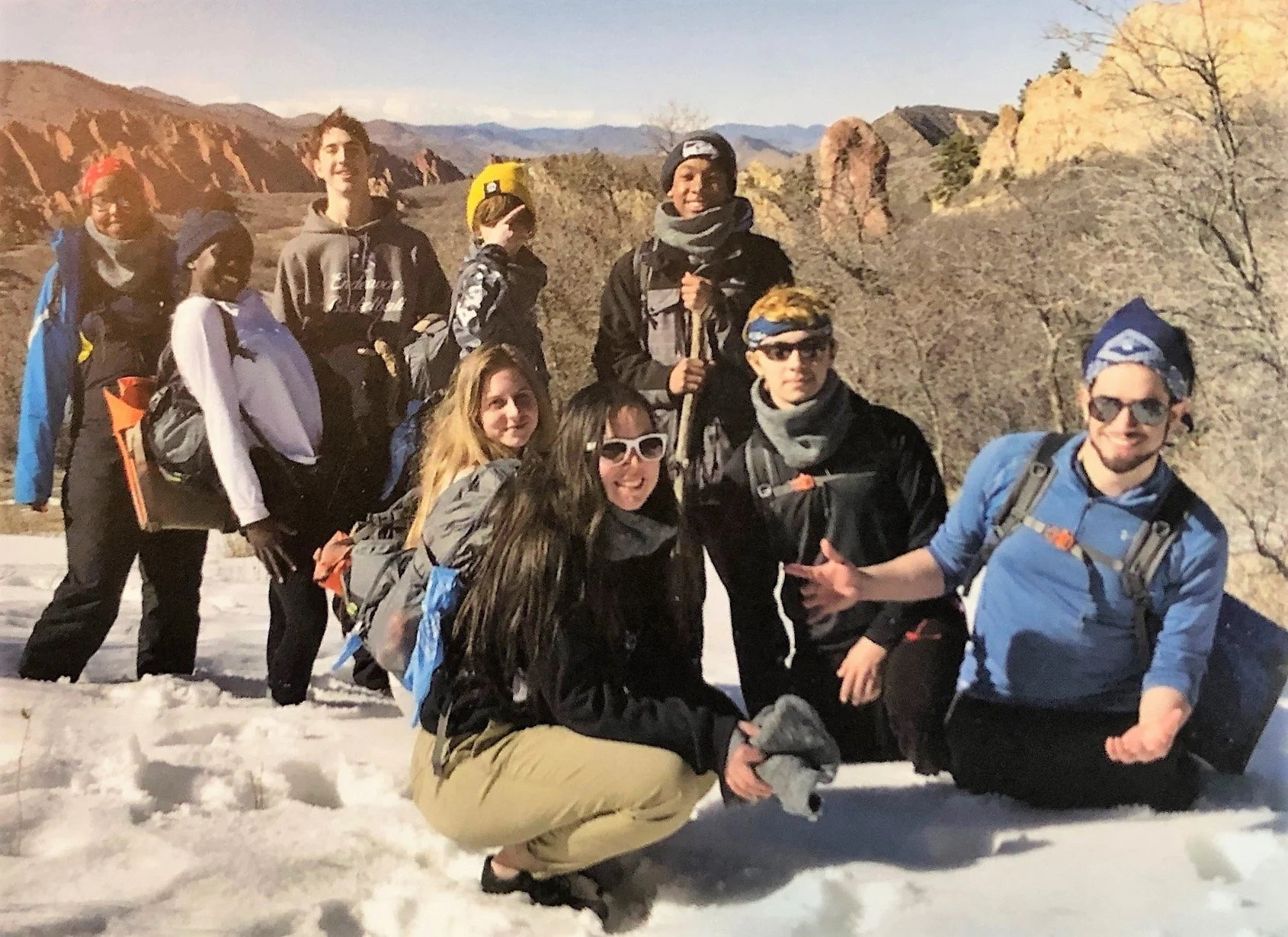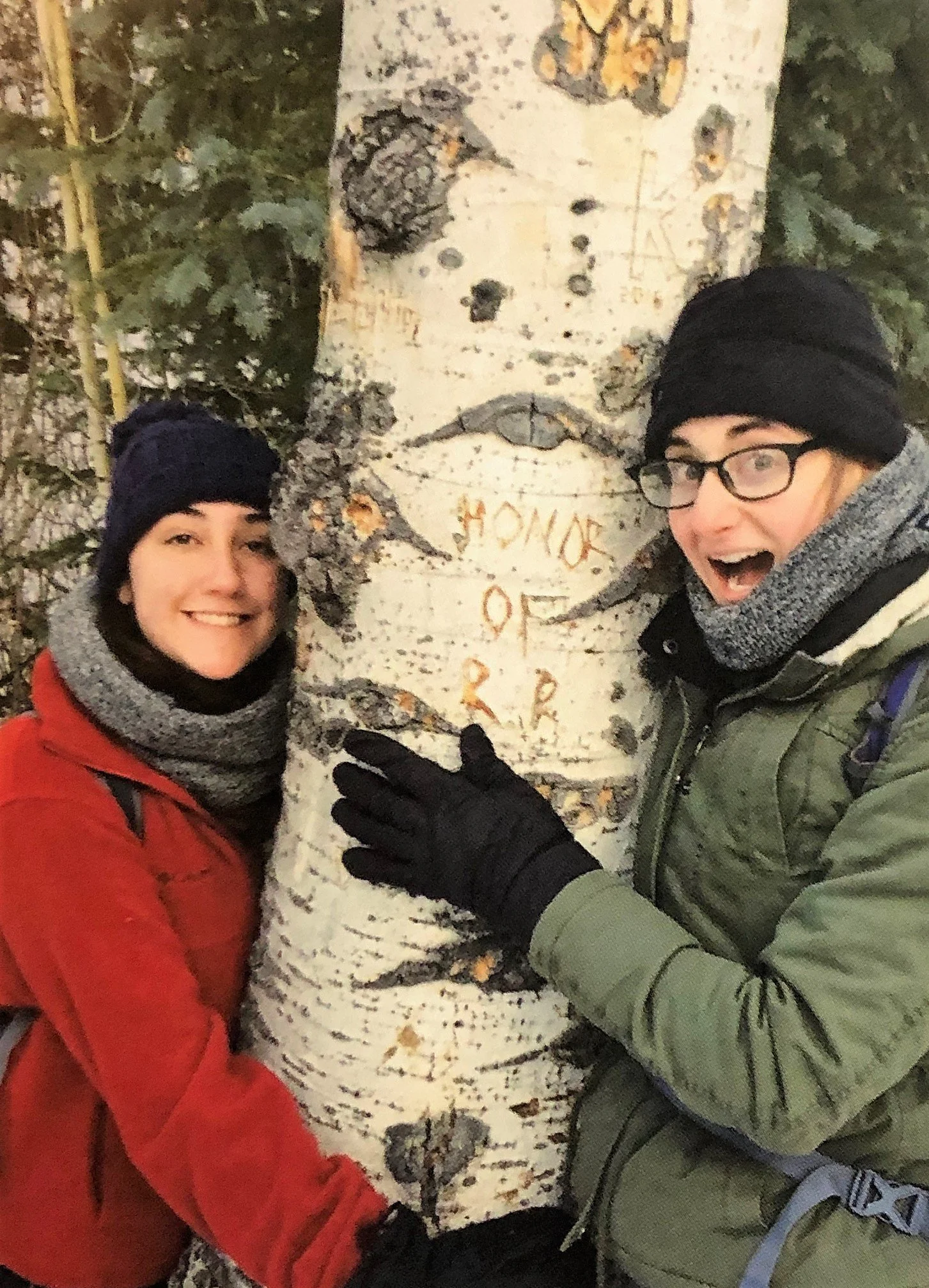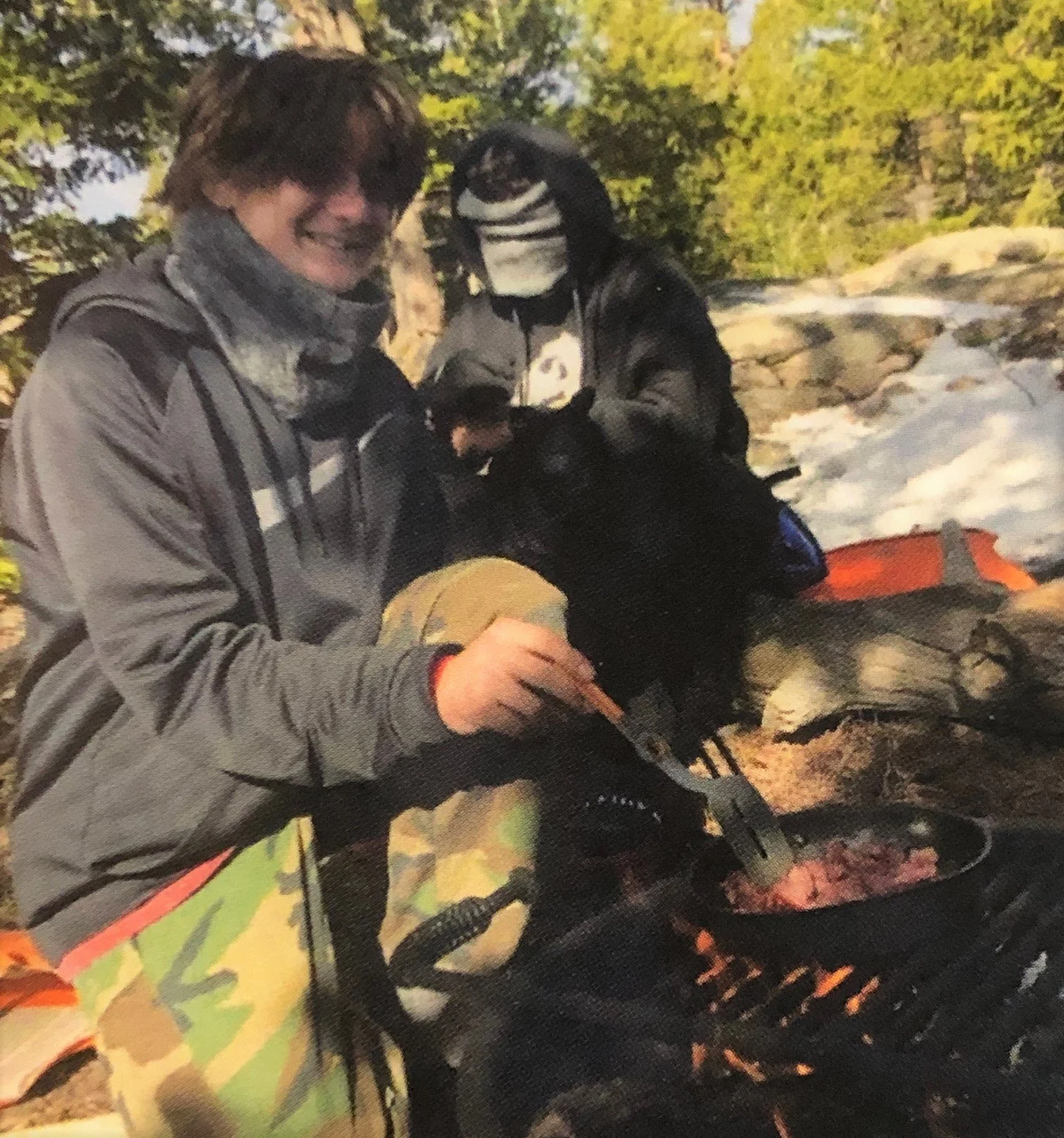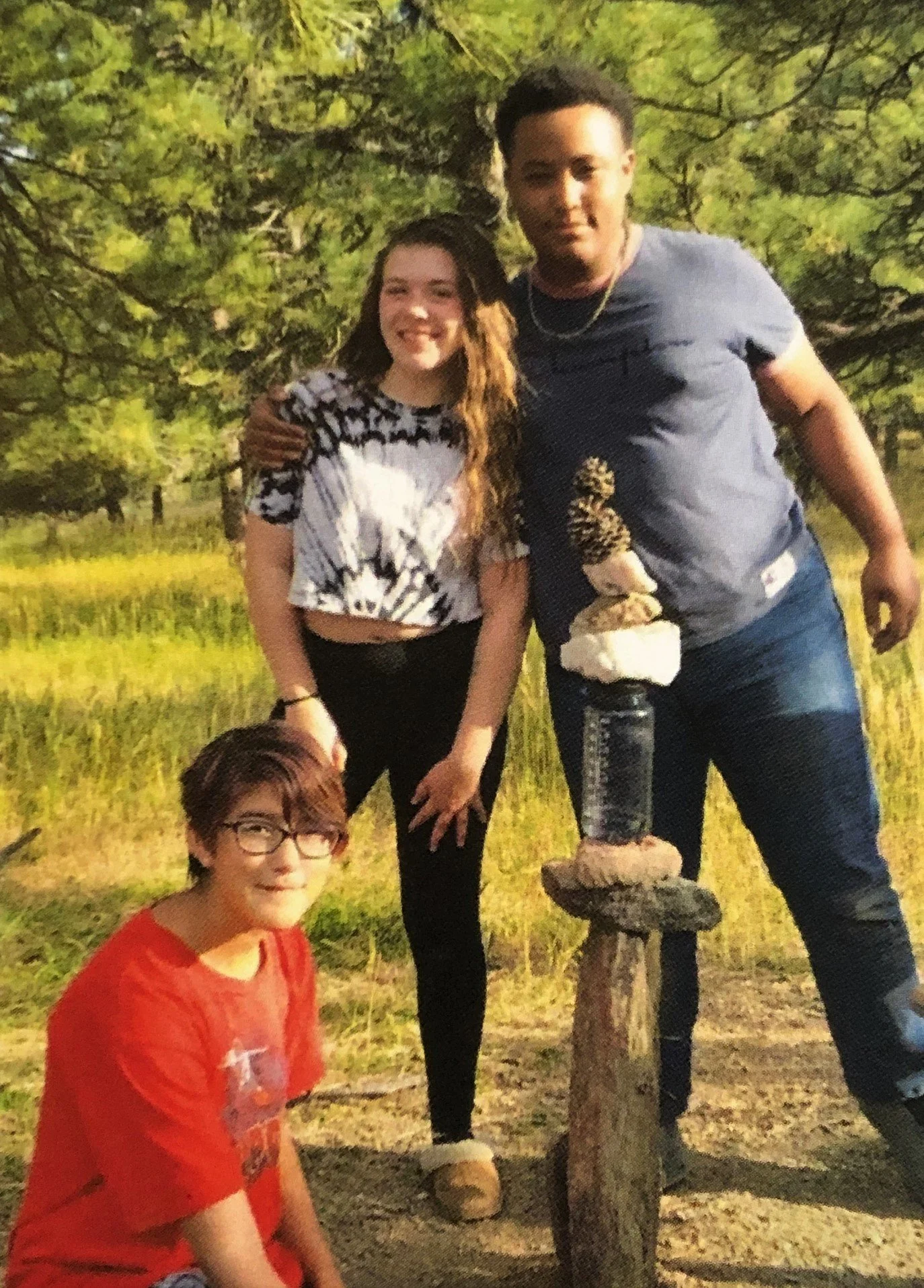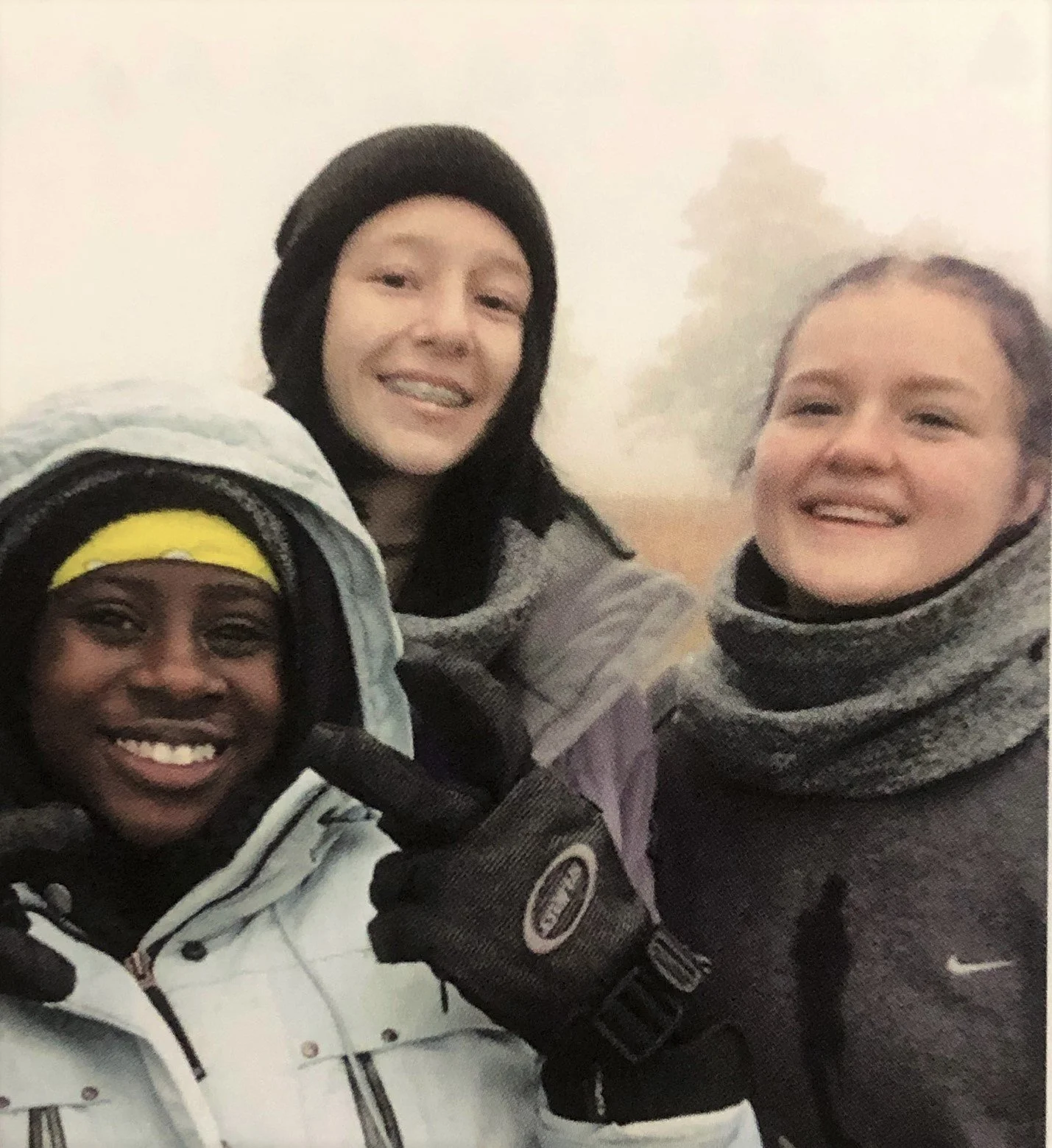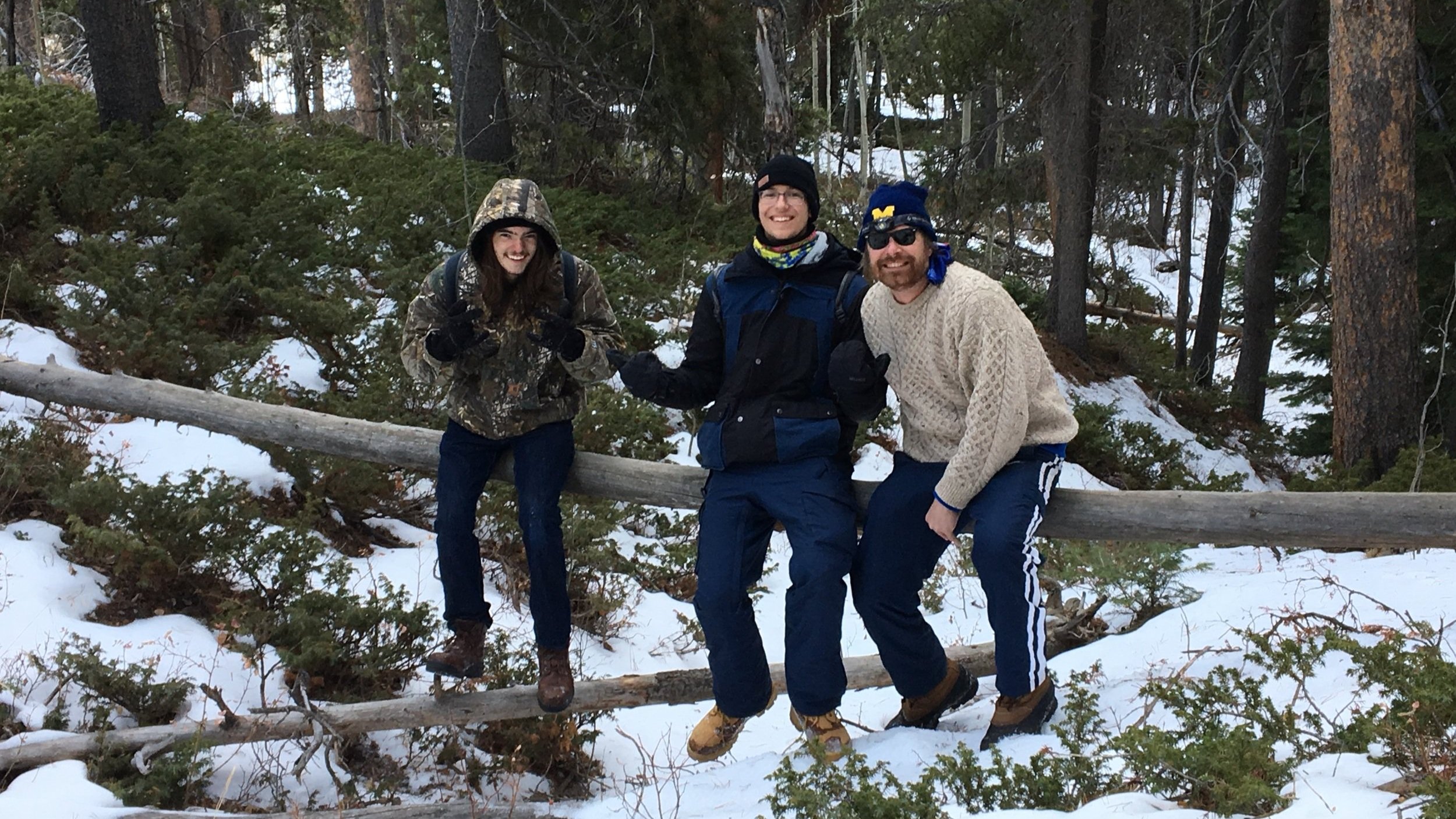
Outdoor Education in Action
The following is a summary of a Case Study conducted in 2019-2020 with two different groups of students, ages 15-19, attending a public alternative high school in Colorado. Group A had 11 participants, while Group B had 16. All direct quotes are from the students and help emphasize the take-away and benefits an outdoor program can offer teenagers.
In an attempt to step away from technology to connect high school students with knowledge about and a relationship with nature, this study sought to answer not only how intentional experiences can affect one’s relationship with the outdoors, but also why this connection is important, especially in at-risk teenagers.
Population & Study Overview
Group A was generally less experienced with outdoor activities, and also seemed to have more anxiety about nature than the other group. Over the course of four months they were taught a curriculum which included: camping skills, Leave No Trace, research on local wildlife, Indigenous history and culture of the land, teambuilding, Climate Change/environmental issues, and levels of nature relationships (Physical, Emotional, and Spiritual). This group went on two different day hikes and a camping trip. Of the Group A participants, all went on the first hike, seven joined the second hike, and four went on the camping trip. All students participated in discussions, journals, and final reflections for the course.
Group B brought forth much more experience, excitement about the outdoors, and more open-mindedness. Whether correlated to the class or based on previous experiences together, Group B was also a closer-knit group than Group A. Group B was taught similar curriculum, but with an included focus on Ecological Identity. Students also read articles about the health benefits of nature. Unfortunately, the study was shortened due to COVID-19, and as a result, Group B did not participate in any outdoor excursions and only experienced instruction for two months. Due to the abbreviated time, the content on Indigenous cultures and land was not covered.
All participants had to agree to participate in the study and chose their amount of participation and engagement.
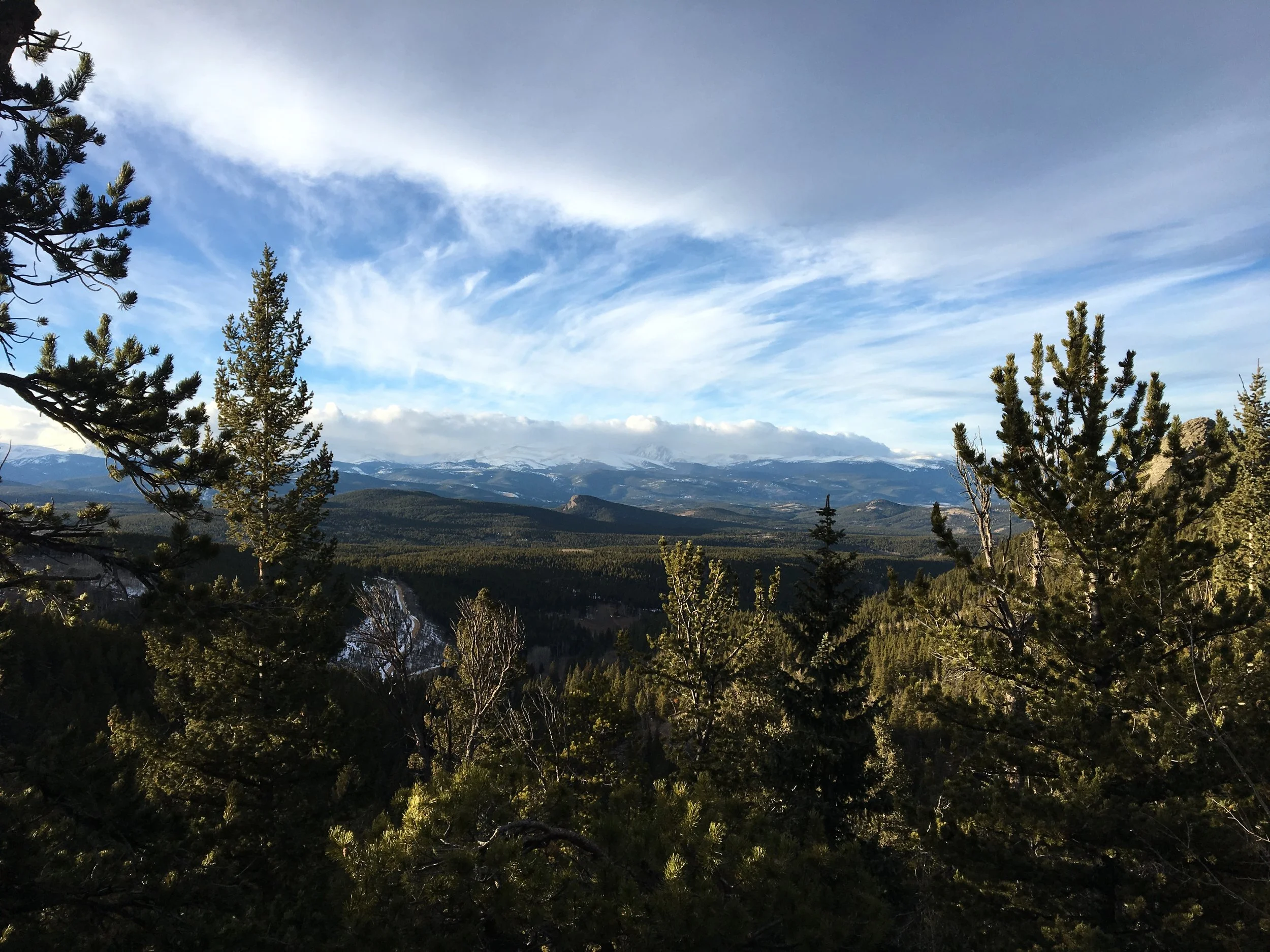
Results and Student Quotes
Data was collected via journal entries and written works by the students. In evaluating their writings, common themes emerged. I will present data broken into the three primary themes participants addressed: the calming health effects of nature, the perceived need to disconnect from technology, and how participant relationships with nature and each other changed and encouraged empathy and awareness.
Nature as a Calming Experience
Many participants, without prompting, acknowledged the positive effect nature had on stress levels.
With already heightened emotions and hormones, teenagers are less equipped to deal with emotional trauma or stress, thus potentially lending to feelings of danger, the antonym of safety. Multiple participants used the word “safe” in reference to their time in nature. This may be an expression of a de-stressed environment.
“A connection to nature is a lot of peace of mind. When you think about nature, it shouldn’t be anxiety-inducing or stressful. It should be calming or relaxing.”
“Throughout the class, I’ve started to understand nature is peaceful to me. It’s a chaotic balance where everything comes back or works out. Breathing in fresh air or laying in the grass makes me feel centered and safe.”
“I love nature. I feel a certain happiness when I am out in nature that I don’t feel anywhere else.”
“It was like I was free. The fresh air felt very calming. It was like I could breathe better.”
Separation from Technology
All trips required phones be left at the school, and this idea left many students feeling anxious at first, but later grateful for the offline experience. Many students also made the correlation that cell phones and social media heightened their stress levels, and there was some relief in escaping that for a short time.
Another unique trend relating to technology was the distinction between natural life and a fabricated existence online.
Even though they felt bound to their phones, the constant bombardment of social media, while intoxicating and addicting, was decisively categorized as different from actual life. For these participants, life was something found in the natural world. This could also explain why so many were relieved to be away from the technological world, even for just a day at a time. These students wanted to connect with real people, places, plants, and animals.
“I feel positive when out in nature because I feel disconnected with tech.”
“To me [having a relationship with nature] means that you are connected with true life and not digital life.”
“I just hope that I start making it an everyday routine to spend some of my day connecting to nature physically.”
Relationships and Stewardship
The theme of a growing relationship or connection with nature was the most consistently discussed theme across both groups.
Biophilia implies a connection from evolution and does not necessarily rely on a specific experience or memory to feel a connection between oneself and nature. This concept was expressed through journal entries of students.
Students started to recognize a relationship with nature based on intrinsic value and not on what nature could do for them.
Students also began building a community and relationships with each other. Two quieter students slowly opened-up with each outdoor excursion and observing them on the camping trip with the other two campers around the fire, one would never have guessed they were quiet in class.
“When I’m in nature (and I mean true nature like mountains and trees and rocks and grass), I feel free like nothing can hurt me. I feel so much of a connection to everything around me.”
One student was in awe of the species around him which, he expressed, held memories and stories from days long gone. “I love seeing the tall trees and thinking about how long they've been there before me.”
“Interact with others. Go that extra mile to meet and make friends with the people in your class, because the more you get to know your fellow classmates and teacher the better the experience will be when you go hiking/camping.”
“I’m aware that even when I'm not paying attention, nature is working its magic and being beautiful as always.”
“If we forget that we are surrounded by intelligences other than our own and view ourselves as superior beings, we completely undermine the world as a being.”
“I felt like I was supposed to be there.”
Conclusion
This study was largely successful. The goal was to encourage students to analyze and hopefully improve their relationship with nature, and results are summarized in the reflective response of one student:
“My relationship with nature has changed a lot because I used to never be out. I've always been used to staying inside watching TV or just playing video games all day and night. But now I actually love to be out with nature because I've realized how relaxing it is to me.”
With the heightening of depression, anxiety, and stress in Western society, it is important now more than ever for people to find healing in the outdoors. This is especially crucial for teenagers who have higher statistics for depression, anxiety, caffeine intake, stress, and exhaustion than former generations (Selhub & Logan, 2012).
Additional research is not needed to prove that outdoor education programs can greatly benefit today’s youth, but more studies could help determine how to reach teenagers in a way that benefits them and hopefully instills a sense of gratitude for the environment that can expand to actionable sustainability.
